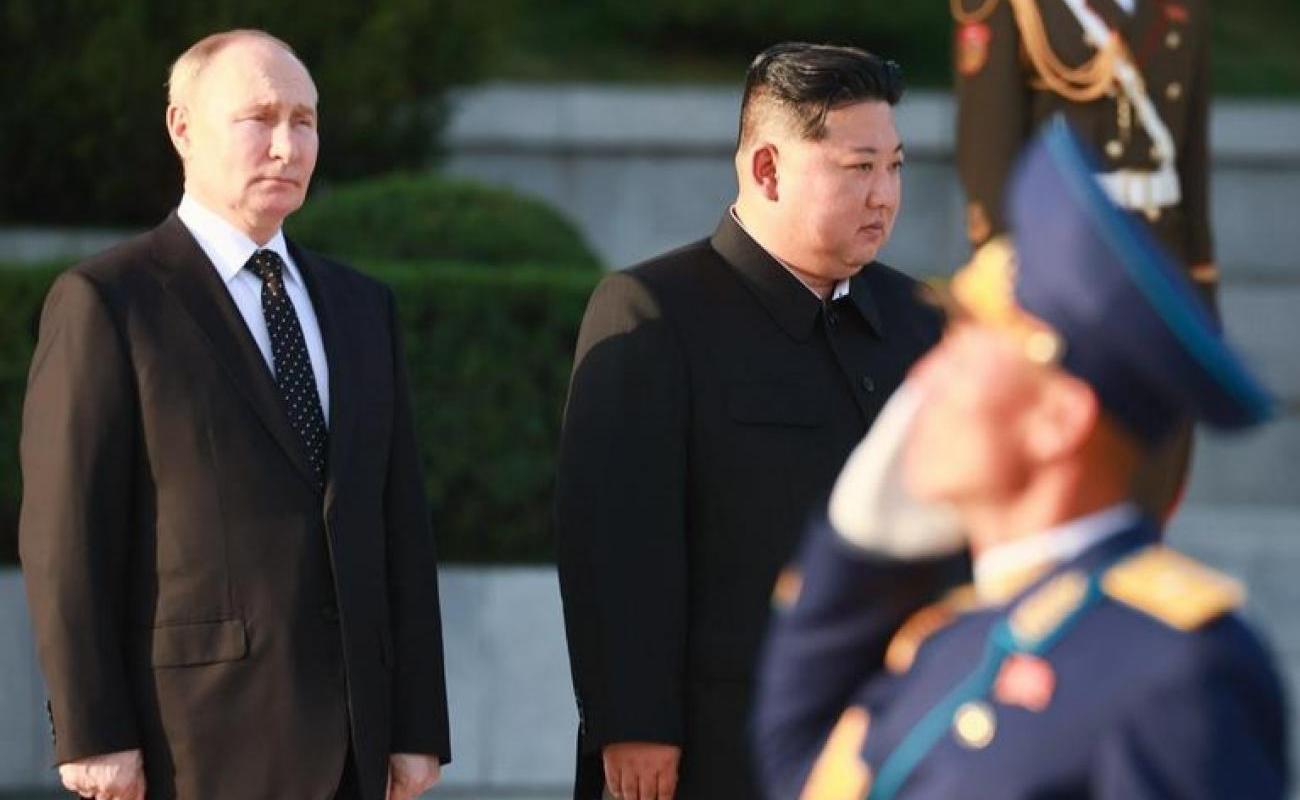North Korean soldiers near Kursk - a cheap deal between Putin and Kim

The North Korean army in the Kursk region is an agreement between the Kremlin and the Kim regime, which will not help the Russian military much. However, Putin hopes to use this to blackmail the US and its allies in Asia, Konstantin Eggert believes.
North Korean soldiers have never seen the Internet in their lives. Once in Russia, they were literally glued to the screens and started watching... online pornography. Gideon Rahman, the Financial Times' leading international columnist, shared this story citing his sources. If true, this story serves as an excellent illustration of the paradoxes and problems of an agreement between the regimes of Vladimir Putin and Kim Jong-un.
Rice and technology for Kim
From what we know today, this involved the exchange of hundreds of thousands of tons of rice and rocket and space technology for soldiers. There is no doubt that the North Korean dictator really needs both rice and technology. He must somehow feed the population living on meager rations and improve North Korea's ballistic missiles.
It is difficult to answer the question of what long-term benefits the Kremlin will get from these agreements. The author of these lines is far from ridiculing the North Korean army as "backward". I was in South Korea. There, the threat from the north is taken very seriously. Skyscrapers in Seoul collapsing under the blows of North Korean artillery are not a cinematic dystopia for South Korean politicians and the military, but one of the possible scenarios of the future, the realization of which is categorically unacceptable.
Will the North Korean army change the situation on the front?
However, if we talk about Ukraine, the question arises: will 10,000 or 20,000 North Korean military personnel, who are preparing or have already joined the battle against the Armed Forces of Ukraine, be able to fundamentally change the situation on the front? After all, their interaction with the Russian military will be difficult. Lack of internet practice is only one of the problems. It will not be easy for the Russian command to set combat missions and receive messages through interpreters. In such cases, there is a high risk of misunderstandings and mistakes.
In addition, the North Korean People's Army (in communist dictatorships everything is always "people's" and "democratic") uses Russian, Chinese and, in fact, North Korean weapons. Its officers study at Russian and Chinese military educational institutions. This means that many elements of troop management and planning differ from what is adopted in the Russian armed forces.
In the end, even if we take into account that the intensity of the fighting today is not the same as, say, at one time in Mariupol or Vovchansk, the number of the North Korean contingent is clearly insufficient to fundamentally change the situation in favor of Russia. Let me guess: after getting to know the Internet, and still far from a dictatorship, the temptation to surrender quickly will be very great for the North Koreans. I'm sure that they will be looking for Korean philologists for the campaign in Kiev, if they haven't already. Of course, keeping the North Korean military from surrendering would be the presence of families held hostage by the Kim dynasty at home. But it generally has a bad effect on morale and determination in battle. There is no doubt that the North Koreans will be thrown into the most dangerous areas of the front. So most of them will not return home, even in zinc coffins. Kim does not need it at all, and is completely indifferent to the lives of his own citizens.
Putin is betting on blackmail
For now, there appears to be little benefit to Putin from the arrival of troops from North Korea. So why does he need it? Don't think this is some particularly clever strategic move. The Kremlin simply took the opportunity to get at least some reinforcements, and relatively cheaply, that's the explanation.
The question, it seems to me, is not about the North Korean soldiers. The Russian regime is looking for tools to blackmail the West. And he believes he found one of them in cooperation with the Pyongyang dictatorship. This is an undisguised threat to America and its Asian allies - South Korea and Japan:
"We've allied ourselves with one of the worst and most unpredictable regimes in the world. Tremble, because we're going to give Kim the missile technology to threaten Seoul and Tokyo with a nuclear strike, even more actively calling on us to ensure peace in Asia - in exchange, of course, for concessions on Ukraine ". I'm not sure that will work with the administration of US President-elect Donald Trump. He considers himself an expert on negotiations with Pyongyang, and Putin is clearly redundant in his Korean plans.
Also, it is still not entirely clear whether Xi Jinping gave Kim Jong Un's consent to the agreement with Moscow? Beijing is Kim's main sponsor and patron. If so, then China is embarking on a path of deliberate destabilization of East Asia. And that will provoke a corresponding reaction from the US, its allies in Seoul and Tokyo, as well as India. This version is hard to believe. If Kim makes an agreement with Putin behind the backs of the Chinese, it will be the first and last such agreement: the regime in Beijing does not forgive its vassals self-rule. But it's most likely a one-time deal, or so it seems so far. The Beijing Politburo does not want the defeat of Russia, but that does not mean that it wants to appear in the eyes of the world as a permanent military ally of the Kremlin. And that's exactly what will happen if sending North Korean troops to war with Ukraine becomes regular.
